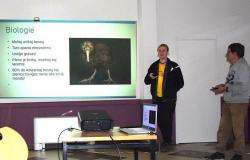Morocco is now facing a new shortage of imported medicines. For two months now, pharmacies have been complaining about the absence of certain essential life-saving medications, particularly for the treatment of cardiovascular diseases. Faced with this situation which exacerbates the suffering of patients and compromises their health, the Moroccan Association of Pharmacists calls for the need to strengthen the national production of medicines with a view to reducing the country’s dependence on imports.
Patients suffering from serious illnesses, such as cardiovascular pathologies and cancer, today struggle to obtain certain essential medications for the treatment of their illnesses.
Indeed, several imported medications are now unavailable in Moroccan pharmacies, such as “Aldactone 50 mg”. An essential medicine to prevent serious complications related to high blood pressure and chronic heart disease. The latter has been out of stock for two months already. And this, without any official explanation being provided, particularly from its manufacturer (Pfizer).
These increasingly recurring supply disruptions are causing serious concern among pharmacists and patients. On the one hand, they force the latter to desperately undertake long and grueling research to be able to obtain the prescribed medication and avoid discontinuation of treatment. On the other hand, they worsen their psychological distress and that of their family. Worse still, it directly affects the health of these people and endangers their lives.
Several reasons could be at the origin of these shortages which have affected Morocco for many months, such as the disruption of supply chains and the lack of certain components of raw materials. However, this situation is due, according to the president of the Moroccan Association of Pharmacists, Mohamed Salami, to two main factors.
The first relates to global market dynamics. According to Mohamed Salami, pharmaceutical companies tend to produce drugs according to a logic that favors massive orders from large entities.
As for the second factor, it is of a national nature and relates essentially to the Moroccan offer. In this sense, the president of the Association calls for the need to strengthen local production in order to be able to guarantee the availability of treatments on the Moroccan market and ensure sufficient supply, particularly for medicines still highly dependent on imports.
In addition, several stakeholders emphasize the importance of an overhaul of the pharmaceutical supply chain as well as better inventory management, particularly for medicines monopolized by a small number of suppliers.
Foreign investment: a lever for the development of the national pharmaceutical industry
In order to deal with these shortages and strengthen the kingdom’s medicinal sovereignty, Morocco has turned to a new initiative which aims to stimulate investments in the pharmaceutical industry sector.
In this sense, Rabat hosted, on October 26, the first edition of the International Congress of the Pharmacy of Tomorrow in Morocco (CIPDM). Initiated by the National Council for the Integration of Moroccan Skills in the World with the support of the Ministry of Industry and Commerce, this conclave brought together a plethora of pharmacists and biotechnology industrialists, of Moroccan origin, practicing in various foreign countries. And this, with a view to bringing together their expertise and allowing them to share proposals, visions and solutions likely to develop the pharmaceutical industry in Morocco and build an innovative and resilient national pharmacy.
In this context, an agreement was signed between the National Council for the Integration of Moroccan Skills in the World and the Banque Centrale Populaire in order to support innovative project leaders wishing to invest in Morocco in the pharmaceutical industry sector. Here is a promising initiative which will contribute to strengthening the kingdom’s medicinal sovereignty and reducing its imports.






